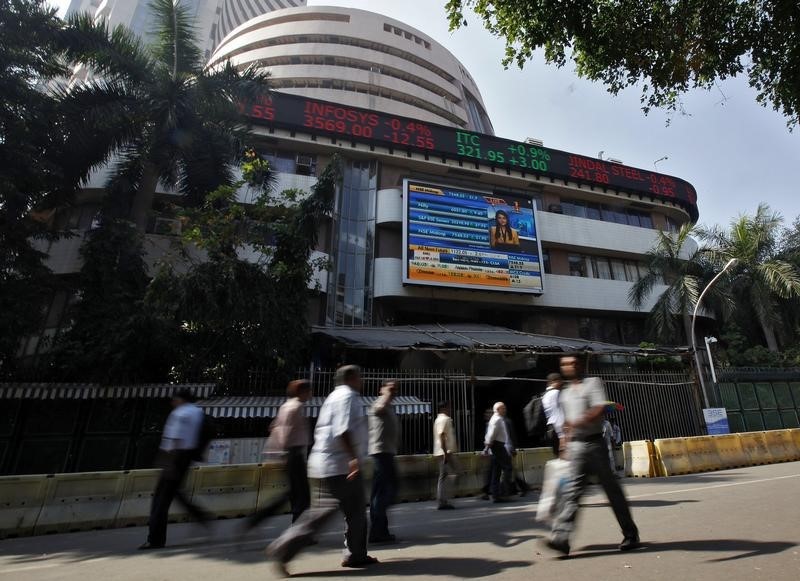By Abhirup Roy and Euan Rocha
MUMBAI, Oct 24 (Reuters) - A proposed crackdown on algorithmic trading in India could hurt the earnings of the country's two main stock exchanges just as both bourses prepare to make their much-awaited stock market debuts.
The Securities and Exchange Board of India (SEBI) in August outlined new proposals aimed at curbing high frequency trading (HFT) in the country, amid fears that retail investors would be disadvantaged against such advanced and expensive systems. new rules - expected to be finalised in coming months - come at an awkward time for India's two main bourse operators, National Stock Exchange (NSE) and BSE Ltd, which are both drumming up investor interest for their respective planned listings.
Some market participants contend the regulations would hit market liquidity, which could hurt exchange operators' earnings and valuations, particularly those of NSE.
"Obviously, HFT regulations will have a bearing when the rules and impact are clear," said a senior banker involved in the NSE's IPO process.
The NSE, the larger of the two exchanges, has not disclosed how much money it would seek to raise via the listings. However, top lender State Bank of India SBI.NS in July sold a 5 percent stake in NSE for 9.11 billion rupees, valuing the bourse at 182 billion rupees ($2.7 billion).
As the vast majority of the so-called HFT being targeted by the regulations occurs on NSE, investors expect it would be hit hardest by new curbs.
The NSE, whose board approved its IPO plans earlier this month, is India's largest bourse with average daily volumes of about 3.6 trillion rupees ($54 billion) in equity derivatives and 214 billion rupees ($3.2 billion) in equities.
Its rival BSE Ltd is a base for mid- and small-cap stocks, typically less appealing to HFT firms. BSE averages 557 million rupees ($8.4 million) in equity derivatives and about 34 billion rupees ($506.5 million) in equities.
The head of the BSE - Asia's oldest exchange - has already downplayed concerns about SEBI's proposed regulations, in August saying the rules would boost market confidence. its prospectus filed last month, BSE flagged regulatory risks, but stopped short of highlighting proposed SEBI regulations. and BSE declined to comment for this article. SEBI did not respond to Reuters' requests for comment.
DIFFICULT TIMING
To be sure, there are few clear signs of what new rules, if any, SEBI will introduce and how these would affect exchange volumes. The curbs being considered range from randomising trade orders to random speed bumps on orders. bankers are reluctant to discuss how these rules will impact valuations, though one source familiar with NSE's IPO plans estimates uncertainty around the rules could knock tens of millions of dollars off its IPO valuation.
The threat of tougher regulations comes as exchanges benefit from a boom in listings, with India seeing the most IPOs in six years, and as rising inflows from retail and foreign investors bolster trading volumes.
NSE's operating profit rose 11.6 percent to 2 billion rupees from a year ago, while the BSE saw operating profit advance 45.4 percent to 610 million in the same period.
India's exchanges have also drawn backing from global institutions with BSE counting Deutsche Boerse DB1Gn.DE and Singapore Exchange SGXL.SI among its investors and Norwest Venture Partners and GTI Capital holding stakes in NSE.
BSE has yet to disclose how much it will raise from its IPO, but bankers say the sale should raise about $200 million for its investors, valuing the exchange at more than $700 million.
One overseas fund manager, whose firm owns stakes in a handful of exchanges globally, fears the rules could hurt foreign investor sentiment around Indian markets more generally.
"They are whistling past the graveyard if they think it is not going to hit the exchanges," he said.
